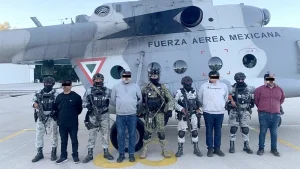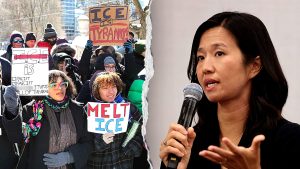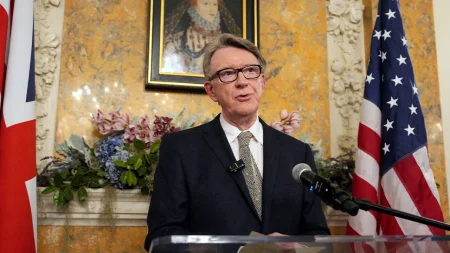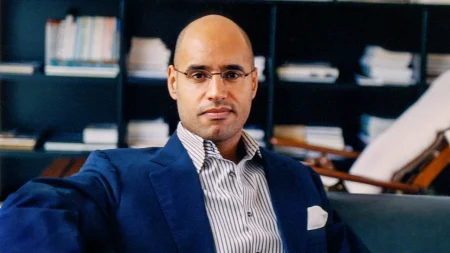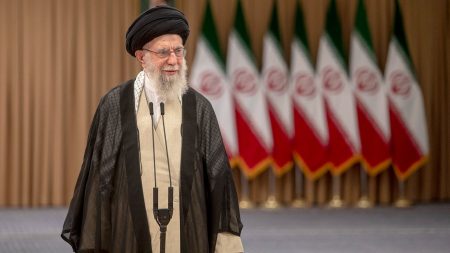Pressure Mounts on Ukraine as U.S. Pushes Peace Framework
In a moment described by President Volodymyr Zelenskyy as “one of the most difficult” in Ukraine’s history, a U.S.-backed peace framework is creating tension between Kyiv, its European allies, and Washington. The plan, developed by special envoy Steve Witkoff with input from both Ukrainian and Russian channels, has placed Zelenskyy in an extraordinarily difficult position. Speaking candidly about the pressure, Zelenskyy warned his nation they may face “a very difficult choice: either losing its dignity or risking the loss of a key partner.” The Ukrainian leader finds himself caught between maintaining his country’s sovereignty and responding to mounting pressure from the incoming Trump administration, which appears eager to end the conflict before the holidays.
The draft peace framework reportedly contains several controversial provisions that would require significant concessions from Ukraine. According to multiple sources, the plan would have Kyiv cede the eastern Donbas region to Russia, restrict Ukraine’s ability to conduct long-range strikes inside Russian territory, and cap Ukraine’s armed forces at approximately 600,000 troops. These terms have alarmed Ukrainian officials, with one source describing them as “political suicide” that would make Zelenskyy responsible “for the loss of about one-fifth of Ukraine.” The Ukrainian leader has consistently ruled out recognizing Russian sovereignty over any Ukrainian territory, stating there can be “no reward for waging war.” Despite these reservations, a U.S. official told Fox News Digital that “it was strongly implied to the Ukrainians that the United States expects them to agree to a peace deal,” with any adjustments to be determined by President Trump himself.
The emerging diplomatic push has caught European allies off guard, with many leaders first learning about the framework through media reports rather than official channels. This has prompted urgent crisis calls between European leaders and both Zelenskyy and Trump. German Chancellor Friedrich Merz reportedly canceled domestic engagements to speak with both leaders, while the governments of Germany, France, and the United Kingdom quickly moved to reaffirm their “unchanged and full support on the way to a lasting and just peace” for Ukraine. The apparent disconnect between the U.S. approach and European positions highlights growing tensions within the Western alliance over how to resolve the conflict, which has now dragged on for nearly three years with devastating consequences for Ukraine and regional stability.
In Moscow, the Kremlin has responded cautiously to the peace initiative. Spokesman Dmitry Peskov acknowledged that Washington has presented “certain ideas” but claimed that “nothing substantive is currently being discussed.” Nevertheless, he emphasized that Russia remains “completely open” to peace negotiations, a statement that contrasts with President Vladimir Putin’s continued military operations in Ukraine. The Russian position remains ambiguous, with Putin having previously demanded recognition of Russia’s claimed annexations of Ukrainian territory as a precondition for any settlement. Whether Moscow would accept the reported terms of the U.S. framework – which would grant Russia control of the Donbas but presumably not other occupied territories – remains uncertain.
During a UN Security Council briefing on Thursday, tensions over the peace proposal were on full display. U.S. Ambassador Mike Waltz pressed for urgency, stating that diplomacy is “the only path to a durable and just peace” and noting that Washington has “proposed generous terms for Russia, including sanctions relief.” He emphasized that “under President Trump’s leadership, the United States will continue to pursue a path to peace in Ukraine.” Ukraine’s Deputy Representative to the UN, Khrystyna Hayovyshyn, responded forcefully, declaring that Kyiv would reject any settlement compromising its sovereignty: “There will never be any recognition, formal or otherwise, of Ukrainian territory temporarily occupied by the Russian Federation as Russian. Our land is not for sale.” She further stressed that Ukraine would not accept limits on its self-defense capabilities or its sovereign right to pursue desired alliances.
Zelenskyy now faces perhaps the most challenging diplomatic balancing act of the war. While acknowledging the intense pressure, he has urged his people to remain disciplined and united as negotiations continue. “We will not make any loud statements; we will work calmly with America and all our partners,” he assured Ukrainians. “I will present arguments, I will persuade, I will offer alternatives, but we will definitely not give the enemy any reason to say that Ukraine does not want peace.” The Ukrainian president warned his citizens to expect “a lot of pressure — political, informational and other kinds of pressure — to weaken us,” but vowed defiance: “we have no right to allow that… we will succeed.” As he prepares for crucial discussions with Trump in the coming days, Zelenskyy must navigate between his nation’s existential interests, the demands of his most powerful ally, and the realities of a conflict that has inflicted immeasurable suffering on his country. The outcome of these negotiations could determine not only Ukraine’s territorial integrity but also its future as a sovereign, independent nation.

